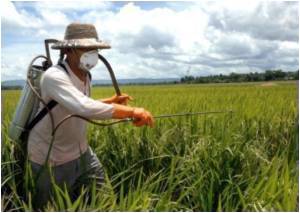
Research Group on Human and Mammalian Reproduction, University of Rennes 1), the CHU (University Hospital Centre) in Pointe ... Pitre (urology department, University of the French West Indies and Guiana) and from the Center for Analytical Research and Technology (University of Liège, Belgique) conducted a research programme of 709 consecutive incident cases of prostate cancer and 723 controls without prostate cancer to test the hypothesis.
The results ratified the hypothesis and also showed that men, presenting genetic variations, which reduce their ability to eliminate the molecule, have higher risk of developing the disease. The risk was higher in subjects with a family history of prostate cancer first-degree relatives.
"Migration constitutes a period of exposure to specific environmental risk factors, including hazardous chemicals or nutritional agents. Residing in Western countries may induce significant changes in an individual, due, for example, to the adoption of a Western lifestyle, including, in particular, eating habits that may be risk factors for prostate cancer," said the authors.
The results are published in the Journal of Clinical Oncology.
Source-ANI








![Prostate Specific Antigen [PSA] Prostate Specific Antigen [PSA]](https://www.medindia.net/images/common/patientinfo/120_100/prostate-specific-antigen.jpg)





